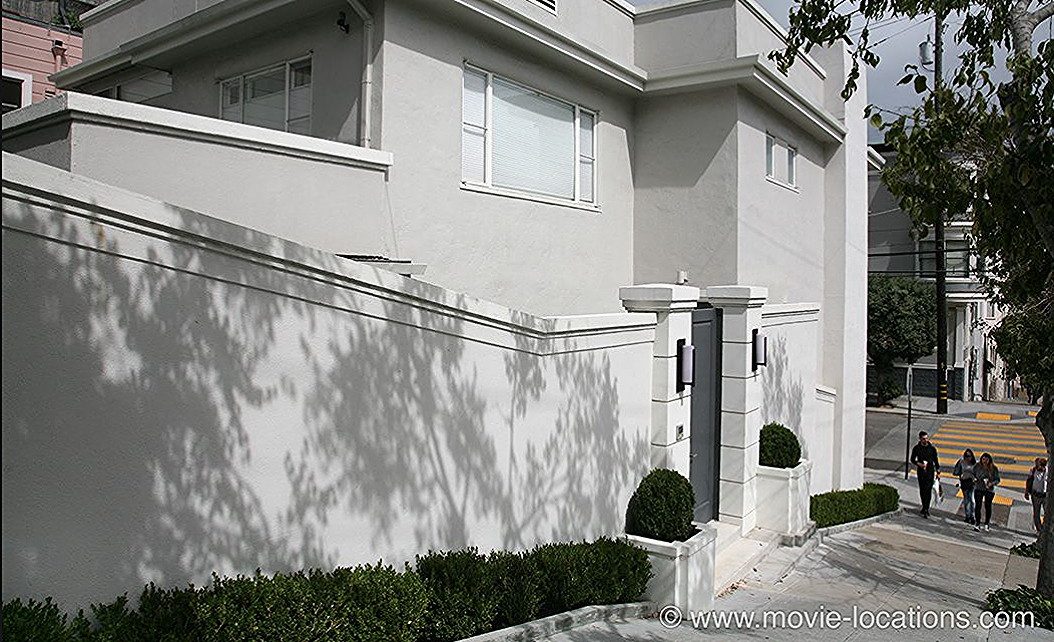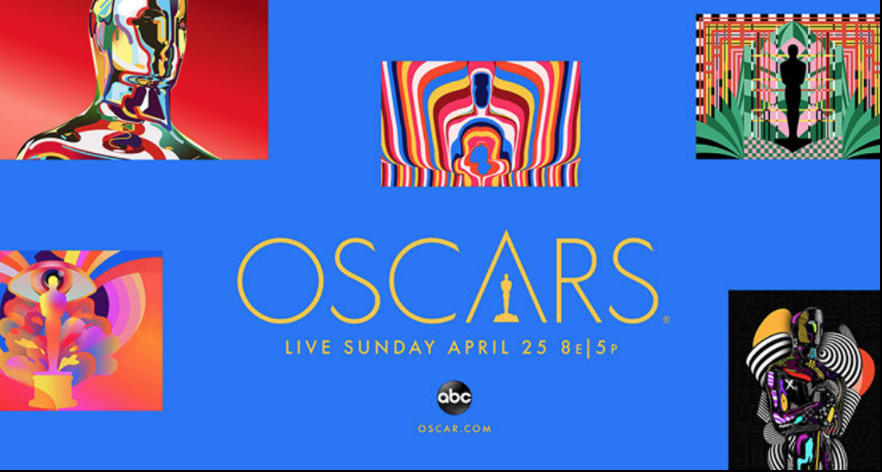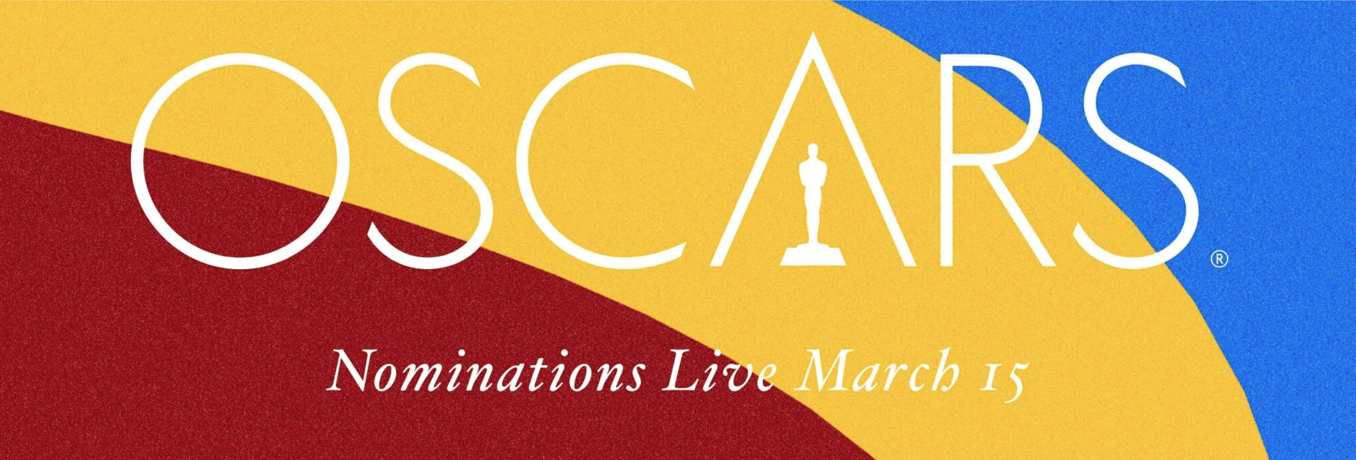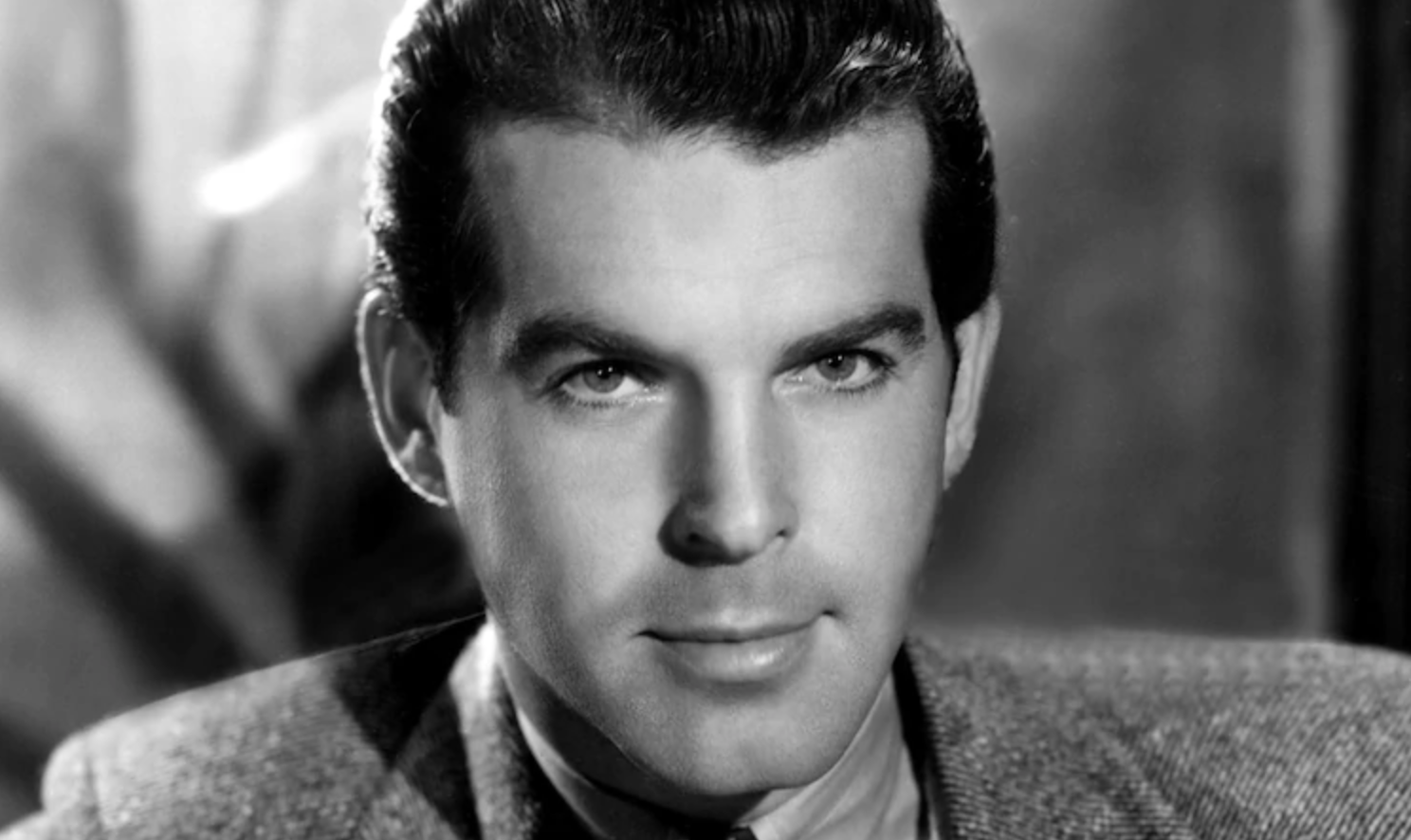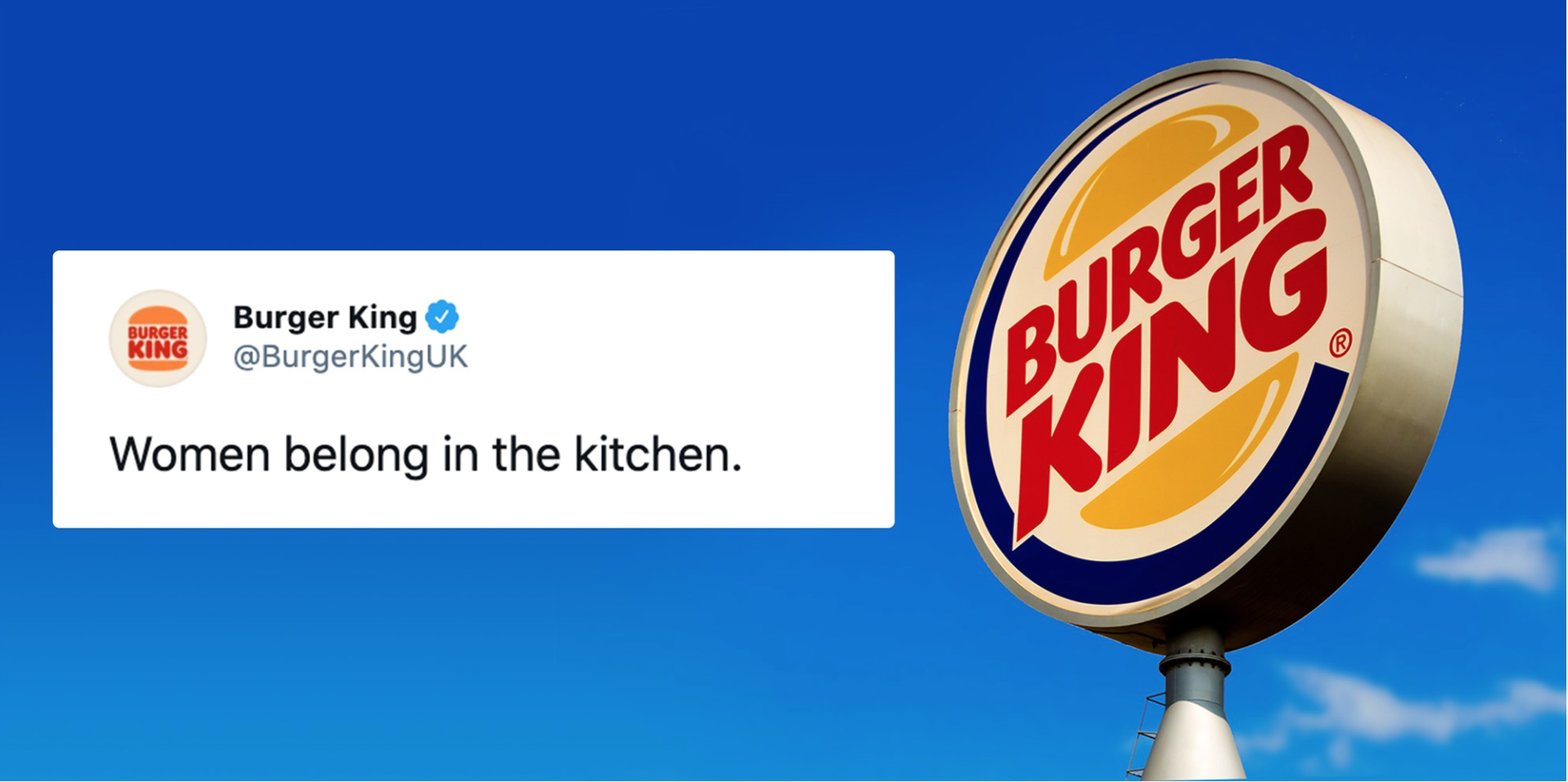
Goorah for “Mank”, LaKeith Stanfield, Zhao and Fennell and (Surprise!) Vinterberg + Best Actor Nominees Hopkins, Ahmed, Yeun
Congrats all around but especially to the Best Director-nominated Chloe Zhao and Emerald Fennell and the ten-nominations-fortified Mank, not to mention surprise Best Director nominee Thomas Vinterberg (Another Round) and the Best Supporting Actor nom handed to Judas and the Black Messiah‘s LaKeith Stanfield (yes!)…and to HE fave Riz Ahmed (Sound of Metal) for Best Actor. And to the concept of diversity in general. Definitely a spread-it-around year.
I decided at the last minute that I couldn’t arise any earlier than 4:50 am and even that was painful after crashing at 1:05 am…plus daylight savings time kicked in early this morning and thereby subtracted an hour’s sleep…I’ll finish when I finish…this is not a track and field competition.
I somehow hadn’t expected David Fincher‘s Mank to emerge as 2021’s double-digit nomination king, but congrats all the same. And Mank‘s Amanda Seyfried, whose prospects were looking a bit shaky, came through with a Best Supporting Actress nom! And cheers also to Netflix for landing 35 nominations in all.
Odd that Mank began with Jack Fincher‘s mid ’90s script, and yet that script, augmented by the great Eric Roth as well as Jack’s son David, wasn’t Oscar-nominated.
Special congrats to Sound of Metal‘s Paul Raci for landing a richly deserved Best Supporting Actor nom. I was worried about his prospects all along as awards-giving-group after awards-giving group kept blowing him off….thank goodness!
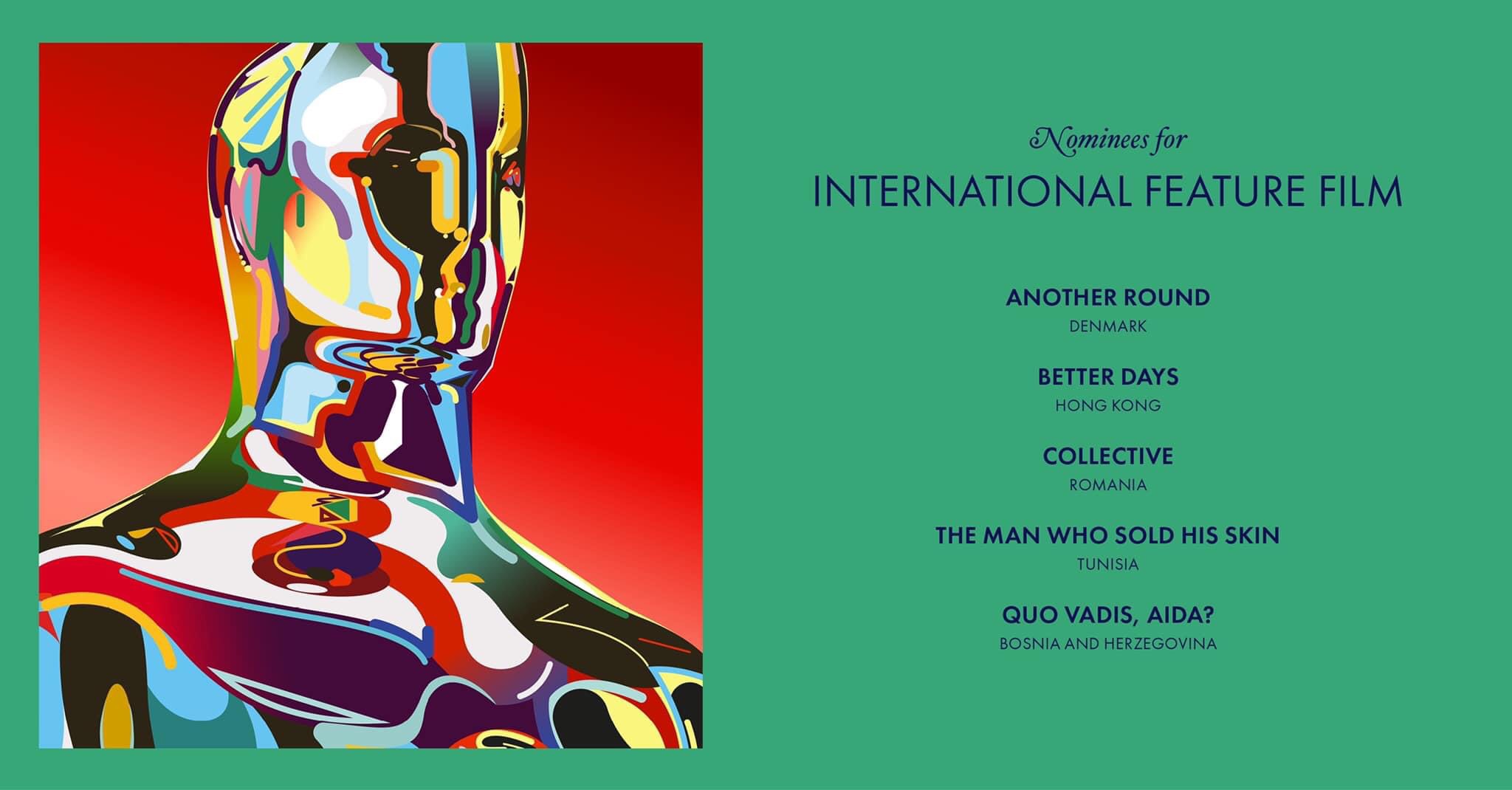
Shame on the Best International feature nominating team for blowing off Andrei Konchalovsky‘s Dear Comrades, by far my preference among the contenders in this category.
Congrats to the five int’l nominees all the same: Another Round (Denmark), Better Days (Hong Kong), Collective (Romania…highly approved!), The Man Who Sold His Skin (Tunisia) and Quo Vadis, Aida? (Bosnia-Herzegovina…harrowing genocide film, only just saw it a week or so ago).
Remember the good old days when the New York Film Critics Circle was regarded as an occasionally predictive body as far as major Oscars noms were concerned? Before they moved lock, stock and barrel to Planet Woke? Their instincts proved prophetic as far as Best Director nominee Chloe Zhao and Best Supporting Actress nominee Maria Bakalova are concerned, but has anyone seen First Cow around lately? The NYFCC also went with Da 5 Bloods‘ Delroy Lindo for Best Actor and Never Rarely Sometimes Always‘ Sidney Flannigan for Best Actress.
Best Picture: The Father, Judas and the Black Messiah, Mank, Minari, Nomadland, Promising Young Woman, Sound of Metal, The Trial of the Chicago 7.
Best Picture Blowoffs: Ma Rainey’s Black Bottom, Regina King‘s One Night in Miami (respectful salute but it was never in the cards), Paul Greengrass‘s News of the World…which others?
Best Director: For the first time in history two women were among the five nominees — Nomadland‘s Chloe Zhao and Promising Young Woman‘s Emerald Fennell. Special congrats also to Thomas Vinterberg for Another Round (big surprise + high approval for an effort I didn’t get around to seeing until a week ago because I’m not a big fan of films about boozing). Plus Mank‘s David Fincher and Minari‘s Lee Isaac Chung.
Best Director Blowoffs: Chicago 7‘s Aaron Sorkin, The Father‘s Florian Zeller, Sound of Metal‘s Daris Marder, One Night in Miami‘s Regina King. With only five slots, a few had to fall by the wayside…sorry, due respect. The international Academy voter factor led to Vinterberg’s nomination, for sure.
Best Actress in a Leading Role: The United States vs. Billie Holiday‘s Andra Day (full respect for single best element in Lee Daniels‘ film), Ma Rainey’s Black Bottom‘s Viola Davis (steamroll bluster — nom expected all along, won’t win), Pieces of a Woman‘s Vanessa Kirby (rounding out the pack), Nomadland‘s Frances McDormand (fritos!) and expected winner Carey Mulligan for Promising Young Woman.
Best Actress Blowoffs: None to speak of. Despite what Deadline‘s Pete Hammond projected a while back, The Life Ahead‘s Sophia Loren was never really in the running. Well, she was but without any noticable steamroll effect, at least not as far as HE’s insect antennae vibrations were concerned.
Best Actor in a Leading Role: Sound of Metal‘s Riz Ahmed (yes!), Ma Rainey’s Black Bottom‘s Chadwick Boseman, The Father‘s Anthony Hopkins (certainly!), Mank‘s Gary Oldman, Minari‘s Steven Yeun.
Best Actor Blowoffs: Da 5 Bloods‘ Delroy Lindo, who might’ve had a chance if costar Boseman hadn’t tragically passed last August. The performance by The Mauritanian‘s Tahar Rahim was too quiet and modest to land a nomination. If HE was an emperor-dictator I would have given a nom to The Way Back‘s Ben Affleck — his boozy basketball coach has authority and conviction.
Best Actress in a Supporting Role: Borat Subsequent Moviefilm‘s Maria Bakalova; Hillbilly Elegy‘s Glenn Close (HE predicted eons ago that she would be nominated and sure enough she bulldozed her way in, much to the chagrin of many elite critics) , The Father‘s Olivia Colman, Mank‘s Amanda Seyfried and Minari‘s Yuh-Jung Youn (funny, fire-starting grandma).
Best Supporting Actress Blowoffs: The Mauritanian‘s Jodie Foster (sorry, good performance, somebody had to be cut).
Best Actor in a Supporting Role: The Trial of the Chicago 7‘s Sacha Baron Cohen (yes!), Judas and the Black Messiah‘s Daniel Kaluuya (not as good as Stanfield), One Night in Miami‘s Leslie Odom, Jr.; Sound of Metal‘s Paul Raci (yes!) and Judas and the Black Messiah‘s LaKeith Stanfield (yes!). Who will win? Fascinating competish.
Best Original Screenplay: Judas and the Black Messiah (Will Berson, Shaka King, Keith Lucas & Kenny Lucas…go, Clayton Davis!); Minari (Lee Isaac Chung); Promising Young Woman (Emerald Fennell); Sound of Metal (Derek Cianfrance, Abraham Marder & Darius Marder); The Trial of the Chicago 7 (Aaron Sorkin). I’m presuming Sorkin will win this one as a make-up for not being nominated for Best Director.
Best Adapted Screenplay: Borat Subsequent Moviefilm (Peter Baynham, Sacha Baron Cohen, Jena Friedman, Anthony Hines, Lee Kern, Dan Mazer, Erica Rivinoja & Dan Swimer); The Father (Christopher Hampton & Florian Zeller); Nomadland (Chloé Zhao); One Night in Miami (Kemp Powers); The White Tiger (Ramin Bahrani). HE predicts The Father or Nomadland to win.
Best Cinematography: Judas and the Black Messiah, Mank, News of the World, Nomadland and The Trial of the Chicago 7. The likeliest winner is…?
Best Documentary Feature: Collective, Crip Camp, The Mole Agent, My Octopus Teacher, Time. HE supports either Collective or Time.
Best Animated Feature Film: Onward, Over the Moon, A Shaun the Sheep Movie: Farmageddon, Soul, Wolfwalkers. HE sez “no” to Soul.
And all the others…
Best Costume Design: Emma, Mank, Ma Rainey’s Black Bottom, Mulan, Pinocchio
Best Original Score: Da 5 Bloods, Mank, Minari, News of the World, Soul.
Best Live-Action Short Film: Feeling Through, The Letter Room, The Present, Two Distant Strangers, White Eye.
Best Animated Short Film: Burrow, Genius Loci, If Anything Happens I Love You, Opera, Yes–People
Best Documentary Short Subject: Colette, A Concerto Is a Conversation, Do Not Split, Hunger Ward, A Love Song for Latasha.
Best Sound: Greyhound, Mank, News of the World, Sound of Metal, Soul.
Best Production Design: The Father, Ma Rainey’s Black Bottom, Mank, News of the World, Tenet.
Best Film Editing: The Father, Nomadland, Promising Young Woman, Sound of Metal, The Trial of the Chicago 7.
Best Visual Effects: Love and Monsters, The Midnight Sky, Mulan, The One and Only Ivan, Tenet.
Best Makeup and Hairstyling: Emma, Hillbilly Elegy, Ma Rainey’s Black Bottom, Mank, Pinocchio.
Best Original Song: “Husavik” from Eurovision Song Contest: The Story of Fire Saga, “Fight For You” from Judas and the Black Messiah, “lo Sì (Seen)” from The Life Ahead (La Vita Davanti a Se); “Speak Now” from One Night in Miami; “Hear My Voice” from The Trial of the Chicago 7. HE supports Diane Warren‘s “lo Sì”.
Finally Visited “Double Indemnity” Home
Just before 5 pm Sunday afternoon Tatiana and I visited the famous Double Indemnity house. Described as a “Glendale” home in the film, it’s actually located at 6301 Quebec Drive, west of No. Beachwood Drive in the Beachwood Canyon area.
Talk about a home cursed with blood and deceit. Phyllis Dietrichson (Barbara Stanwyck) and her crabby, barking-voiced husband (Tom Powers) lived in this classic Spanish-style home. It’s also where insurance salesman Walter Neff (Fred MacMurray) first met Phyllis and became smitten, and where he tricked her husband into signing a life insurance policy without knowing it. And it’s where he snuck into the garage and hid in the back seat of the Dietrichson’s car on the night of the murder. It’s also where Phyllis shot and seriously wounded Neff in Act Three, and where Neff shot Phyllis right back, point blank and killing her cold.
I was gratified that the house looks mostly as it does in the film, which Billy Wilder directed between 76 and 77 years ago.
The garage isn’t the same. Someone destroyed the twin arched carport entrances — now it’s just one big rectangular door. The front yard palm trees are gone, replaced by three cypress tree and some large bushes. A few 21st Century cars parked nearby kind of kill the mood; ditto a pair of big plastic garbage bins. The place just doesn’t feel quite as mythic in real life as it does in the film. But the fact that it’s 90% unchanged is cool.

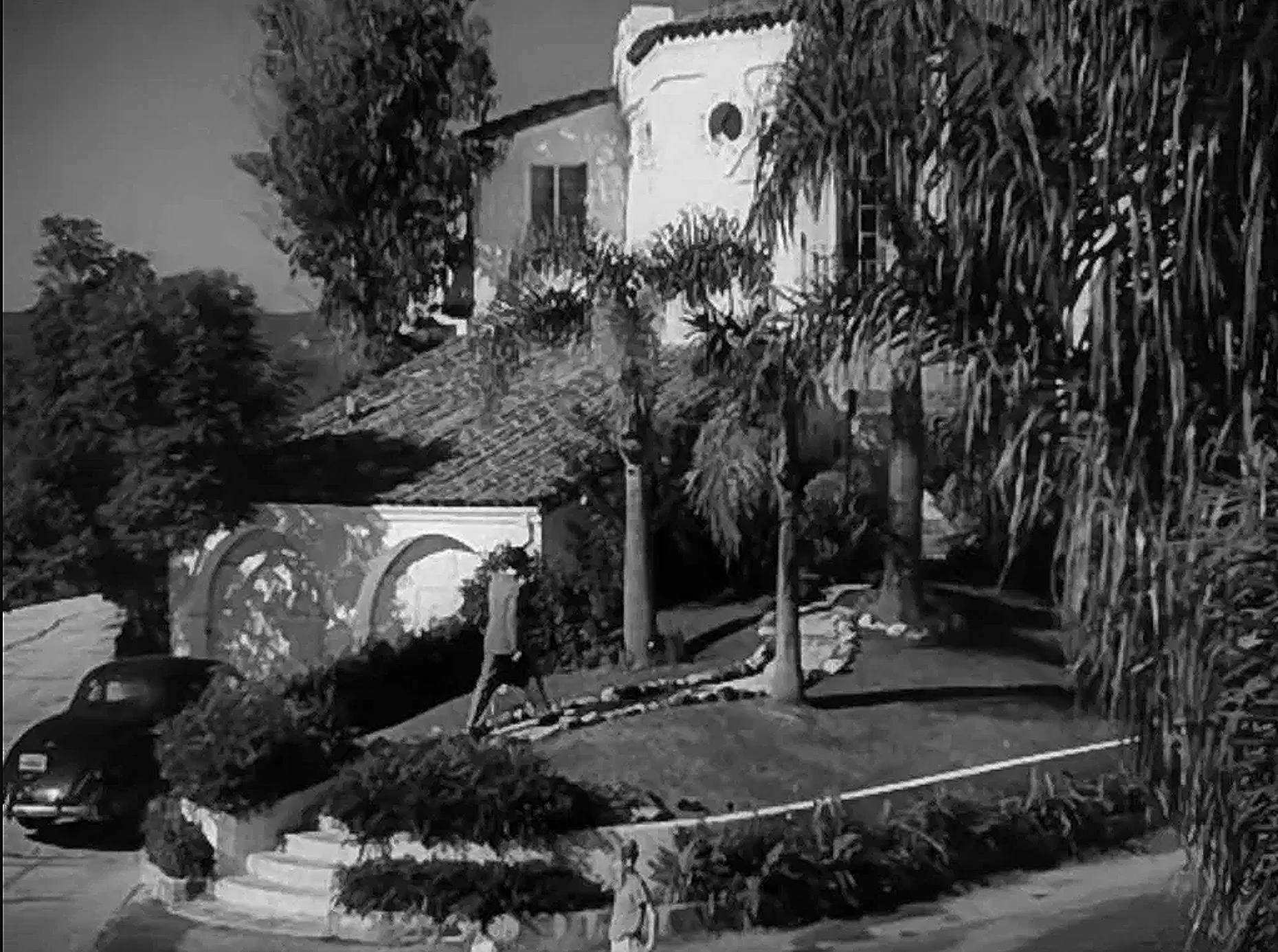

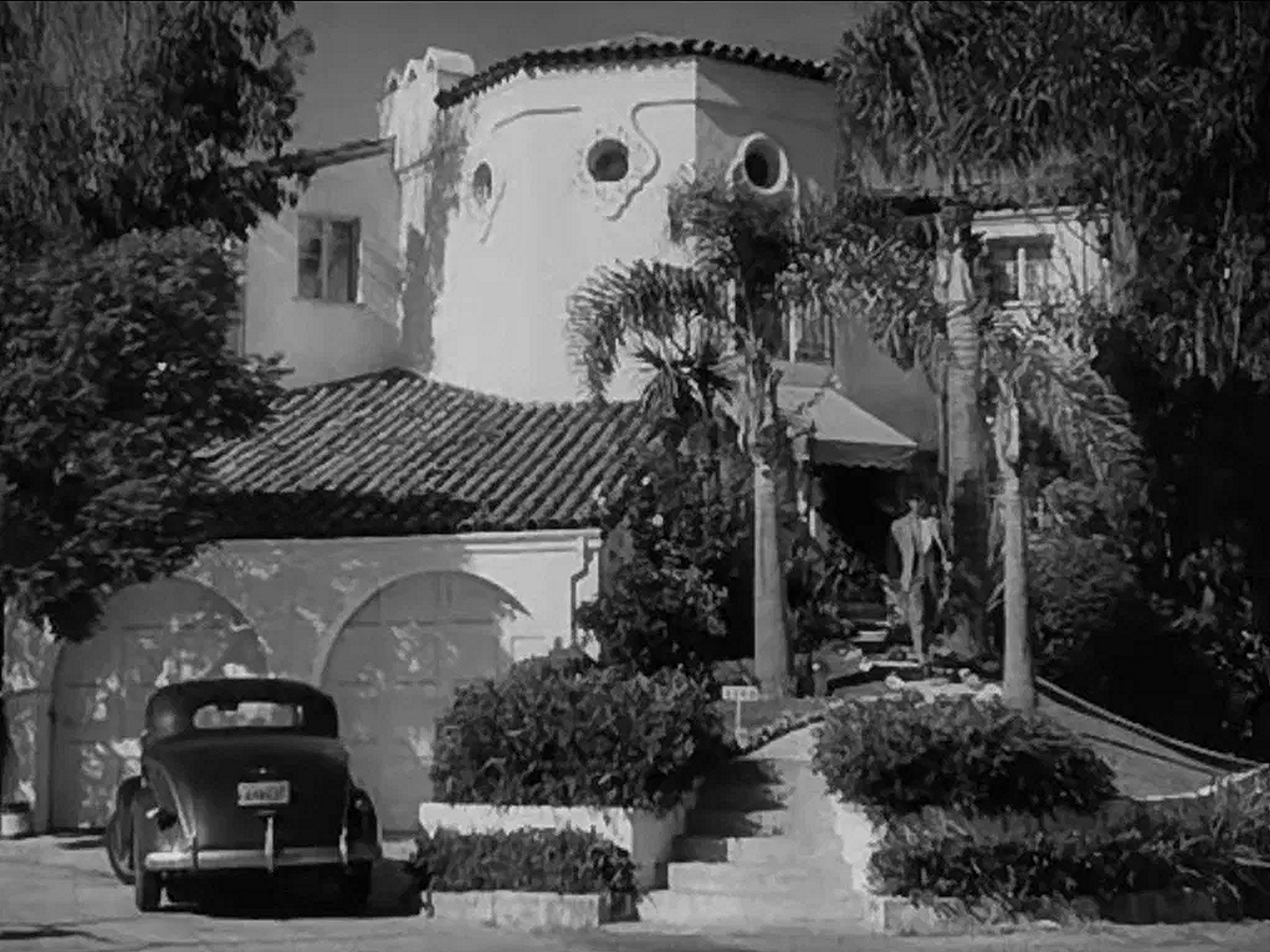
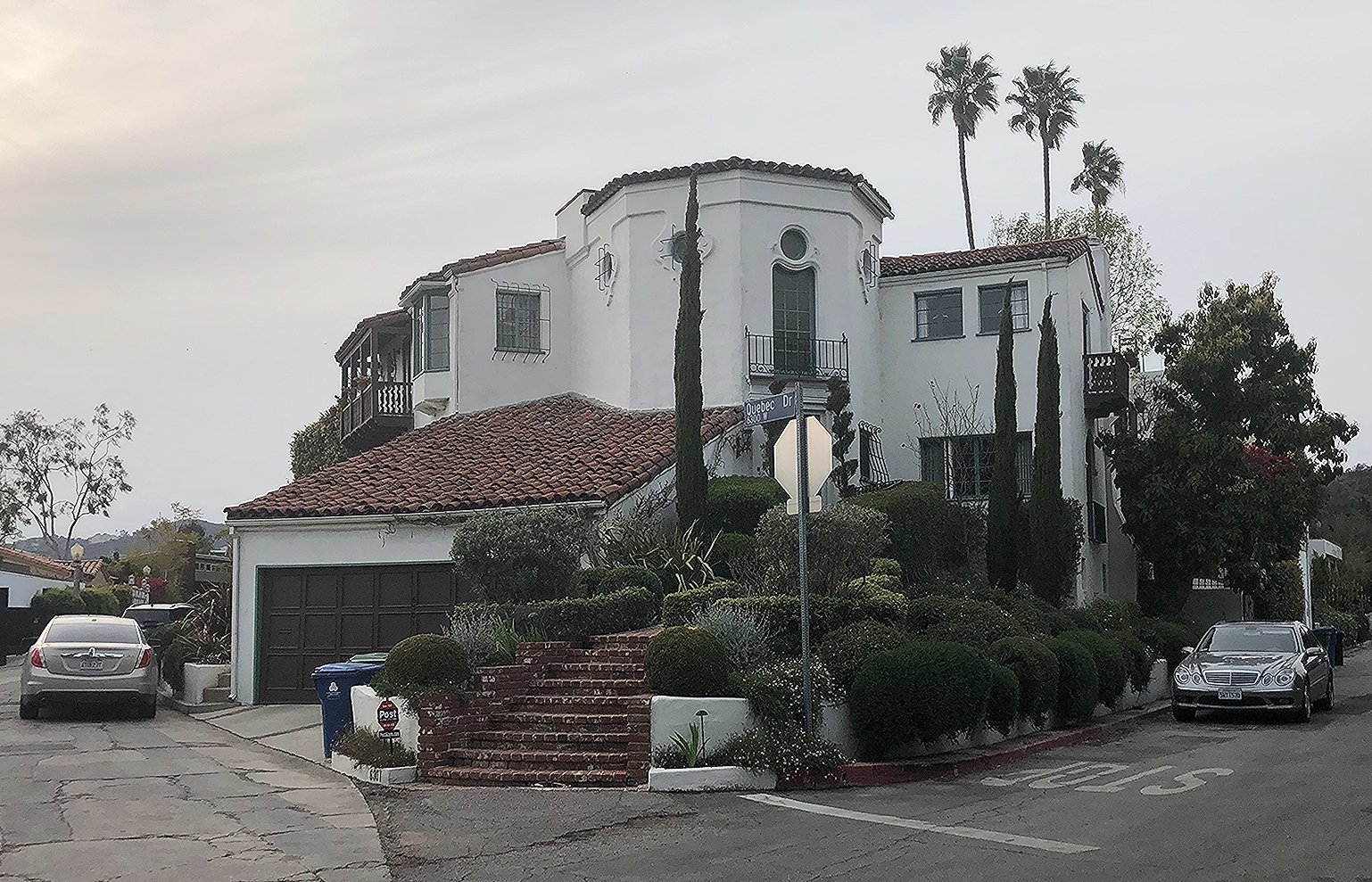
Which Potential Oscar Nominees Might Be Snubbed?
We all have the same assumptions about tomorrow morning’s Oscar nomination announcements. So what might surprise us? Who or what might be snubbed? Put another way, which potential nominees are likely to cause the most chatter if they don’t receive a nomination? I’m not sensing any potential earthquakes of any kind.
Will ten (10) Best Picture nominations be announced, or will it be the usual seven or eight? I can’t dissect the whole rundown because…well, I’m a little fatigued by it all. Plus as it’s just after 3 pm and I’d really like to get some hiking in before dark.
But I’ll ask this: Given the across-the-board respect and admiration for Aaron Sorkin‘s The Trial of the Chicago 7, why isn’t Sorkin turning up on more lists of potential Best Director nominees? I’m presuming that he’ll be nominated and that Promising Young Woman‘s Emerald Fennell might not be, but what do I knopw? I’d really like to see Darius Marder‘s Sound of Metal score a Best Pic nom, and I’ll be deeply disappointed if The Father doesn’t make the cut. Let’s leave it at that.
I’ll be up at 5:00 am like everyone else, and I probably won’t file anything until 7 or 7:30 am Pacific. One thing that’s fair to say about the ’20 and ’21 pandemic Oscar race, and that’s that there’s not a huge amount of passion in any corner. There are no hate campaigns a la the 2018 attempt to kill Green Book, no takedown attempts to speak of. Okay, I’ve heard about one but it never manifested.
Actor-producer Priyanka Chopra Jonas (The White Tiger) and singer, songwriter and actor Nick Jonas (Kingdom) will announce the 93rd Oscars Nominations in all 23 Academy Award® categories in a two-part live presentation on Monday, March 15 at 5:19 a.m. Pacific.
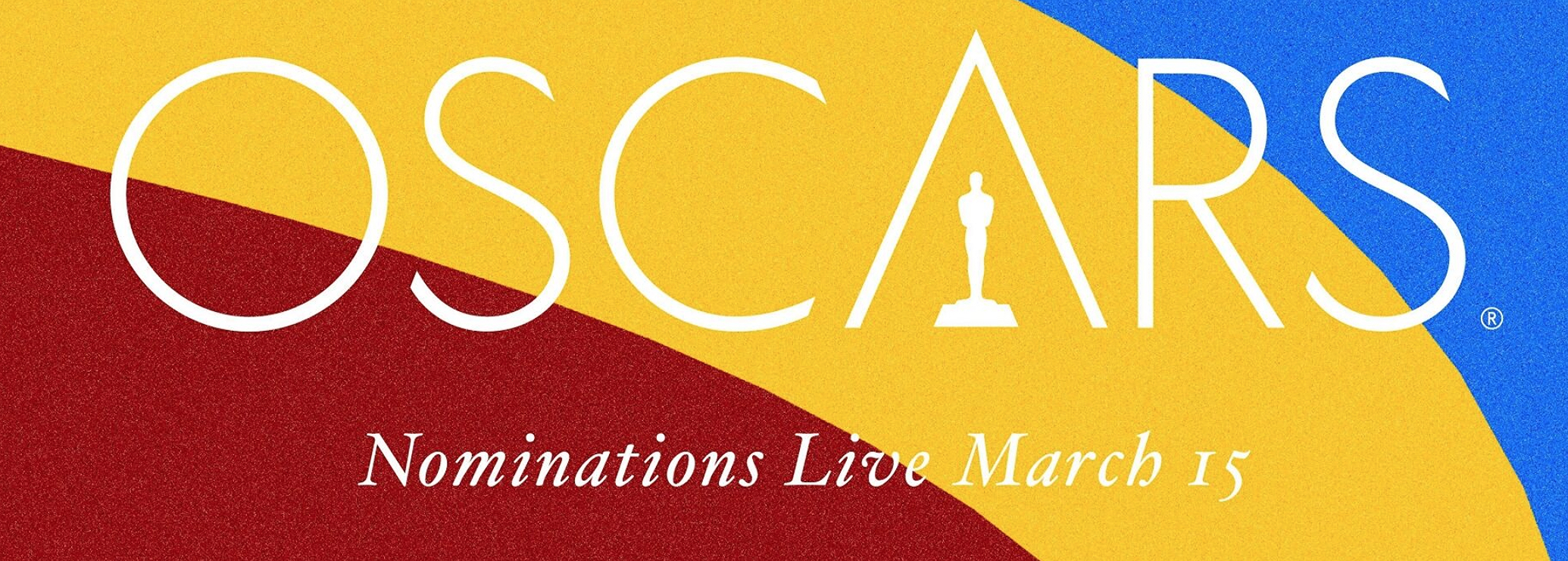
Horse Trailing
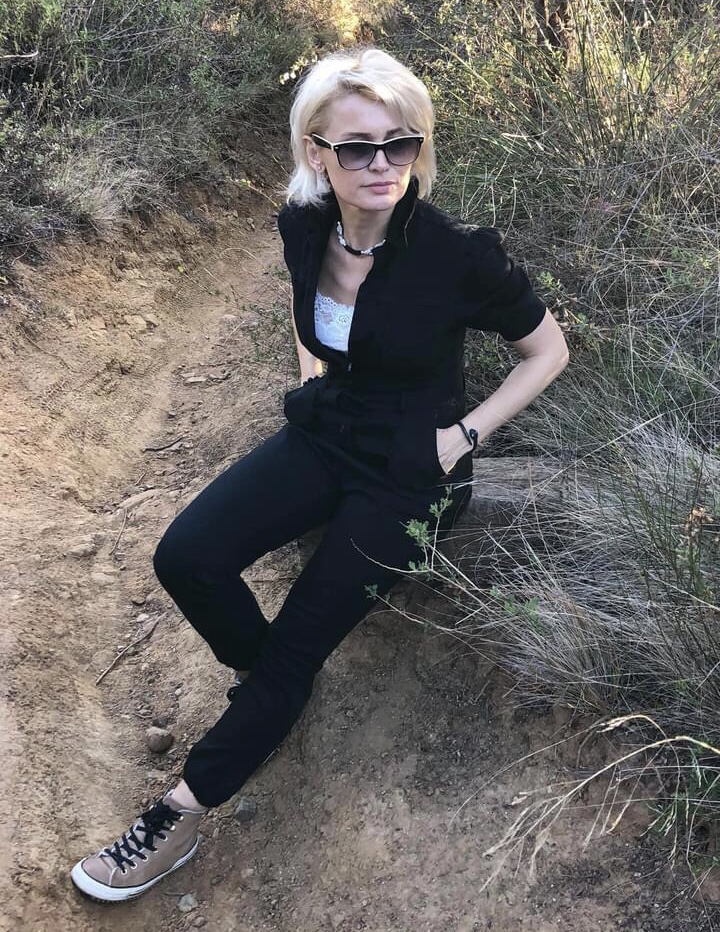
Sullivan Canyon hiking path — Saturday, 3.13, 5:35 pm.

General Consensus
No arguing with this spot-on observation:
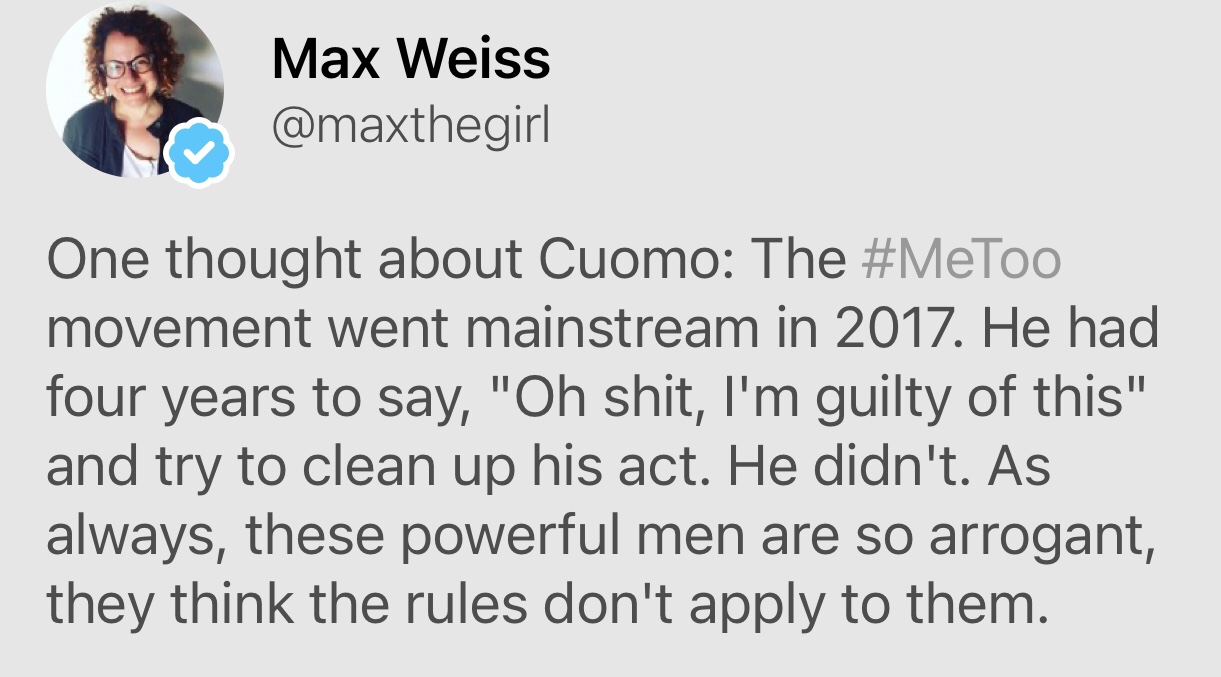
Easy Lay Fanboys
I saw red yesterday when the eternally generous Nick Clement (aka “Actionman”) praised Mark Robson‘s The Prize (’65). He called it “very entertaining and quite nutty…lots of fun!” Daniel Waters described it as “the silly, tonally insane, action jawdropper slash forehead-slapper of its day…my wheelhouse!”
HE response: “Bullshit! Stockholm-set international thriller. Aping the Bond aesthetic. Ernest Lehmann’s script stole Foreign Correspondent‘s idea of there being two elderly look-alikes (Edward G. Robinson‘s Dr. Max Stratman and a double). NOT entertaining…a glossy, shallow diversion that loves, loves, LOVES the idea of being buzzed on martinis.”
Facebook is unfortunately crawling with too-easily-impressed fellows who praise all kinds of second- and third-rate movies. Admiration can be a terrible thing when it’s coming from the wrong kind of movie buff.
A few weeks ago I ran across a fanboy who suggested that Barbet Schroeder‘s Kiss of Death remake (’95) holds a candle to Henry Hathaway’s 1947 original with Victor Mature and Richard Widmark. Schroeder’s film actually isn’t all that bad — it’s just not in the same league as the Hathaway.
Nothing makes me feel more deflated than to hear from easy-lay aficionados about anything. People, for example, who enjoy Mark Robson‘s Von Ryan’s Express (’65), which is basically a half-hearted, run-of-the-mill, big-studio throwaway flick, more than John Frankenheimer‘s jewel-perfect, Swiss-watch-like The Train (’64) — easily one of the greatest realistic action films ever made.
Two years ago Bob Strauss had the utter temerity and gall to call Von Ryan’s Express “less boring” than The Train. God!
Posted on 1.16.19: What sane person in the year 2019 would want to watch The Prize, a piece of slick, cheesy, pseudo-swanky escapism with a James Bond-ian flourish?
Paul Newman starred as an alcoholic Nobel Prize winner in Stockholm, sipping a string of martinis as he puts the moves on Elke Sommer, and as they both get caught up in a Foreign Correspondent-type kidnapping caper. Empty, synthetic crap from start to finish.
And what about director Mark Robson? Talk about a tragic fall from grace.
HE Doesn’t Approve of Union Station…Sorry
Why oh why would Academy honchos be seriously considering staging the 93rd Academy Awards at Union Station, the deco moderne-ish, not-all-that-cavernous railway station** in downtown Los Angeles? Especially when they could do the show from the soon-to-open Academy museum, which could use the promotion and has all kinds of indoor and outdoor spaces (300,000 square feet!) to fool around with…c’mon!
What, seriously, is so damn great about Union Station apart from the appealing early 20th Century design and the fact that many films have used it for period atmosphere?
Funded in 1926, built during the 1930s and opened in May 1939, Union Station is probably the most storied and nostalgic public access structure in all of Los Angeles. To me it’s a Fred MacMurray environment. I was down there three or four months ago, catching an early morning train to San Diego, and everything I saw, sat on, heard, touched and smelled said “Fred MacMurray, Fred MacMurray, Fred MacMurray.”
I understand the Academy’s affection for the MacMurray atmosphere, but at the same time they surely must realize that Millennials and Zoomers, viewers that the Oscar telecast needs in order to remain viable in the future, don’t give a damn about the guy.
It would be one thing if MacMurray mattered in the ’80s, which most Millennials and Zoomers have at least some vague recollection of (even though they mostly regard the Age of Reagan in the same light as the Dead Sea Scrolls), but he stopped being part of the cultural conversation when My Three Sons was cancelled in the mid ’60s.
Academy CEO Dawn Hudson to Millennials, Zoomers: “It’s not just that Fred MacMurray’s career was peaking when Union Station opened, but the fact that we all need to bring a little Fred MacMurray back into their lives in this, a time of continuing Covid depression and lethargy. We need that droll speaking voice, that overfed look, that hat, those baggy pants, that corrupted Walter Neff vibe.”
Is the Academy museum, slated to open on 9.30.21, still being worked on? Does it still have scaffolding and tarps and whatnot? Fine! Use that still-not-finished atmosphere for a sense of realism and a basis for jokes.
Deadline‘s Michael Fleming, posted five days ago: “Nothing is set yet, but sources [are saying] that Union Station is the venue AMPAS and ABC favor at the moment.”
Killer Fleming quote: “Will stars need to wear masks, even if they are properly distanced? Maybe not. It would be a far more visually appealing if masks weren’t part of the fashion.”
Burger King Slapdown
“If you don’t get the joke here, then you’re stupid. You don’t get subtlety, you don’t get humor, you don’t get perspective. And if you do and yet pretending that you don’t, just so you can have something to be pissed off at, then you’re….both ways you’re gross.” [to Larry Wilmore] “It’s an ad, that’s the point…it got your attention.” — Bill Maher during last night’s [3.12.21] Real Time.
Pivot‘s Scott Galloway: “[Ads like this] should be taken with the intent with which they’re given, and this [ad] was meant to highlight sexism. Unfortunately what we have and my industry is guilty of this, but we’ve created an industrial shaming culture. In which there’s money in dunking on people…making [a] caricature of comments, and then using that to extract an ugly place so you can get virtue points.
“Because the moment that you’re offended in our country, it means you’re right.”

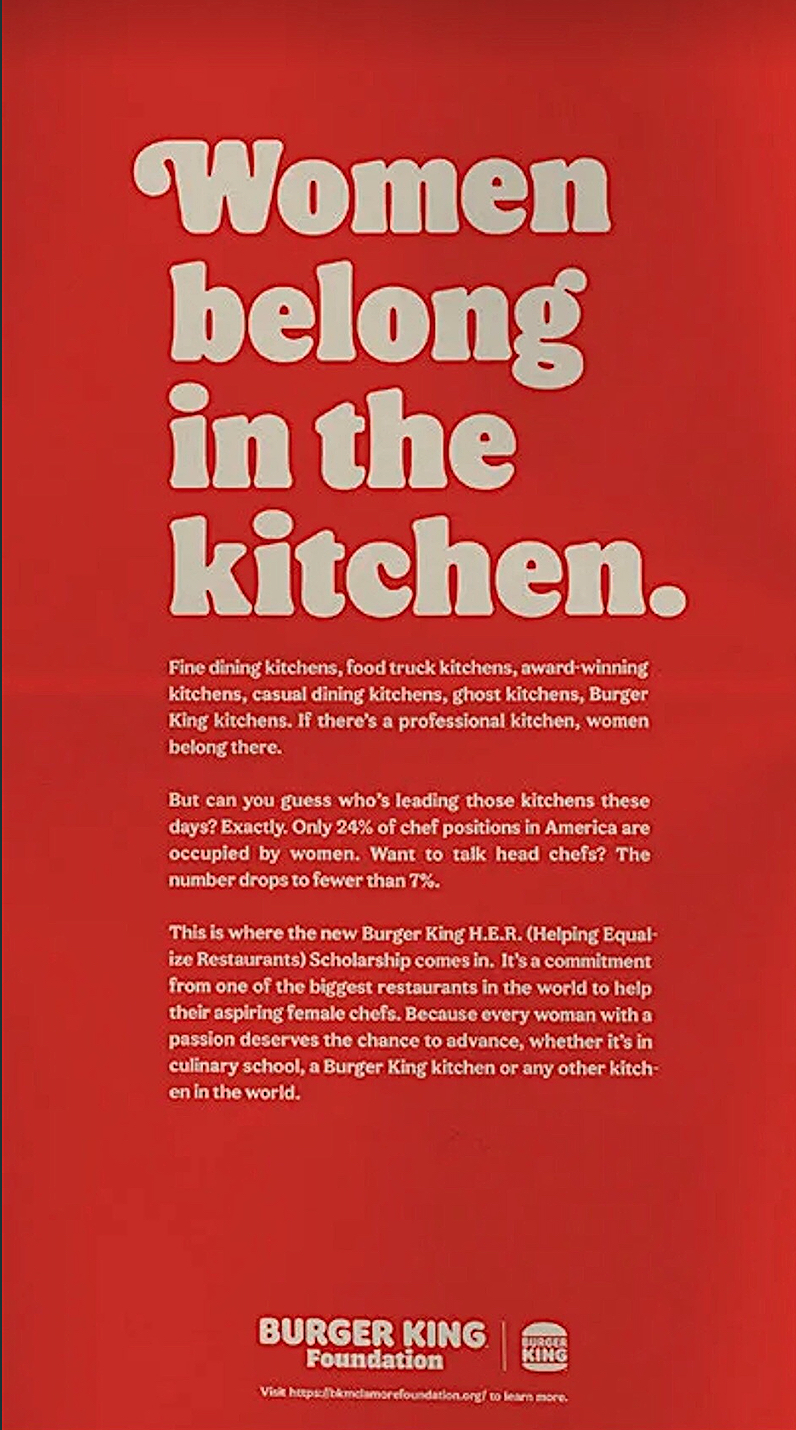
Soviet Righteousness Porn
lmao everyone welcome @SarahKSilverman to our #PoliticallyHomeless party! pic.twitter.com/UL2XxPid6J
— Bridget Phetasy (@BridgetPhetasy) March 12, 2021
From “Death to Me! — The New York Times and the creepy personal and ideological logic of public confessions,” a 2.10.21 Tablet essay by David Mikics:
“If I were Donald G. McNeil Jr., I would want to tell The New York Times, and its publisher, A.G. Sulzberger, to go jump in a lake. Instead, McNeil chose to declare his love for the paper and proclaim his guilt for having ‘hurt’ many hundreds of people. For McNeil’s professional death to have meaning, the party—or the paper—must be infallible. Death to me!
“That this kind of groveling confession is not unique to the Times, but rather plays a key functional role in the politics of woke anti-racism, can be judged with the frequency with which such apologies are staged across institutional and corporate settings where wokeness holds sway.
“Untold millions of true believers lived and died in Stalin’s Soviet Union. When told they were guilty, they sooner or later agreed with the charges against them, even if they couldn’t locate their guilt in anything they had actually done. When the exhausted prisoner finally gives in to the party, which has sole grasp on truth, a soothing relief may come: History has spoken. Koestler and Orwell testify as much in their famous novels.
“Admittedly, at times the prisoners were merely surrendering to a superior force that worked through the deprivation of sleep and food and relentless interrogations — and through more baroque tortures. And there were always those who refused and resisted. But the Soviet system stood for decades on the bedrock of shared guilt.
“In the absence of real evidence and reporting, public confessions helped buttress the credibility of the system.
“These days we repeatedly confess our racism and misogyny, suppressing any sense that we are perhaps not as sinful as we are told. Maybe we haven’t harassed, demeaned, or insulted anyone — but the very impulse to defend ourselves indicates our guilt. After all, we are all part of ‘the system,’ and only a thoroughgoing racist would dispute the idea that the system is guilty.
“Of course, America is not Soviet Russia, or, for that matter, Xi’s China. Our new political commissars don’t use torture, prison cells, and executions. Today’s woke ideology can be publicly attacked, unlike communism in the Soviet Union. Its critics are in fact legion: According to polls, most Americans of all genders and ethnicities think political correctness is a problem. But people are afraid for their careers, and so they remain silent — no matter how much ‘power’ or ‘privilege’ they ostensibly have.”
Smothered In Sickly Gold
There are two versions of John Huston and dp Oswald Morris‘s Reflections in a Golden Eye (’67) — the repellent gold-and-pink-tinted version that was used for the initial release in October 1967, and a follow-up wide release version that used regular color.
I saw the original version at the Carnegie Hall Cinema or Bleecker Street Cinema sometime in ’79 or ’80, and as much as I’d respected the previous experimental color schemes of Huston and Morris (the rose-tinted color palette of Moulin Rouge, the misty grayish tones of Moby Dick), I despised the sickly golden palette (monochrome flooded with gold) in Reflections. It literally made me feel nauseous, and I distinctly recall that this feeling stayed with me the rest of the day and into the evening.
I didn’t “dislike” Huston’s film. I seriously hated it, and was really and truly sorry that I’d submitted. I knew (and still understand) that it was a serious film that was trying to address (i.e., deplore) emotional and sexual repression, but that didn’t help.
Not to mention the vile content of the damn thing — Marlon Brando‘s rigidly closeted Army major, Elizabeth Taylor‘s acidic bitch of a wife, Robert Forster‘s object of erotic desire, Brian Keith‘s easy-going Lieutenant Colonel who’s having it off with Taylor beyond Brando’s gaze, Julie Harris‘s Alison Langdon (Keith’s disturbed wife who’s cut off her nipples with a pair of gardening shears). Talk about your gallery of grotesques!
Audiences felt pretty much the same way about the gold version, which is why Warner Bros. withdrew it and sent out regular-color prints for the wide release in early ’68.
Last year Warner Archive released a double-disc Bluray that included both versions. (Or so I gather.) Right now HBO Max is offering the regular-color version. I tried watching some of it last night; it was half-tolerable.
What films have made HE regulars literally sick to their stomachs and souls? There must be a few.
“Vertigo” Peepers Can Stuff It
The only guided film-location tour I’ve ever taken was a San Francisco Vertigo tour. It was sometime around ’02 or ’03, offered under the auspices of the San Francisco Film Festival. Part of the tour, naturally, was dropping by Scotty Ferguson’s apartment at 900 Lombard Street. The red door was missing but otherwise it half-resembled the original location. No longer — Scotty’s place has since been totally rebuilt and walled off in order to give pesky tourists nothing to see. Go away, we don’t want you around, Vertigo was shot 62 and 1/2 years ago, get a life, etc.


